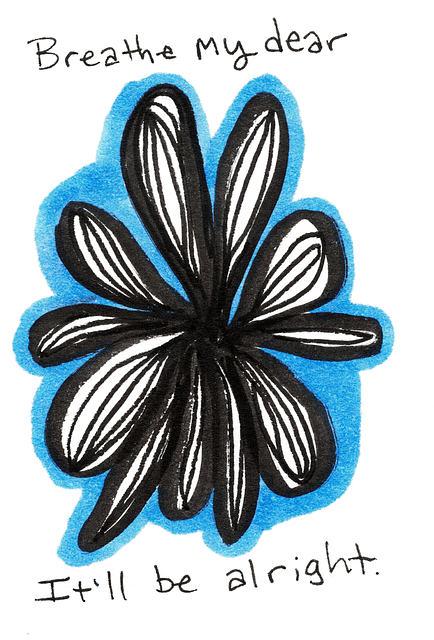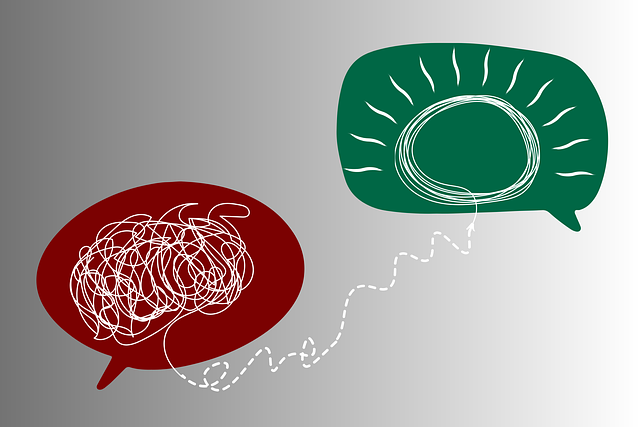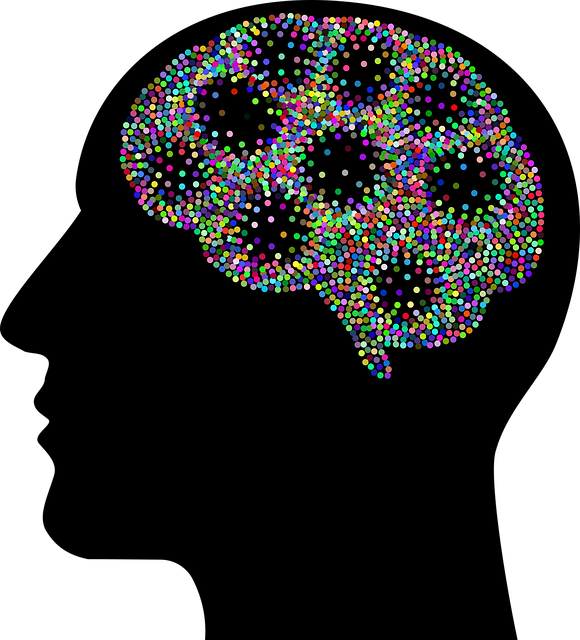Broomfield Adolescent and Teen Therapy leads in holistic mental wellness through its groundbreaking, culturally competent approach. By focusing on emotional intelligence and integrating initiatives like Mental Health Awareness, they reduce stigma and offer tailored support to diverse young patients. Their training programs equip healthcare providers with the sensitivity to address social, economic, and cultural barriers, fostering stronger connections and improving treatment outcomes. Evaluating their effectiveness ensures continuous improvement in delivering equitable care through culturally responsive practices.
“Healthcare provider cultural competency training is an evolving necessity in today’s diverse society. This article explores the significant role it plays in improving patient outcomes, particularly for adolescent populations. We examine the successful approach implemented by Broomfield Adolescent and Teen Therapy, which has set a benchmark for cultural sensitivity in healthcare.
By addressing barriers to effective care faced by youth, understanding the impact of training strategies, and measuring program success, this piece offers insights into enhancing cultural competency, ultimately fostering better patient-provider relationships.”
- Understanding Cultural Competency in Healthcare: A Need for Change
- The Impact of Broomfield Adolescent and Teen Therapy's Approach
- Identifying Barriers to Effective Care: Challenges Faced by Youth
- Training Strategies: Equipping Providers with Cultural Sensitivity
- Measuring Success: Evaluating the Effectiveness of Cultural Competency Programs
Understanding Cultural Competency in Healthcare: A Need for Change

In today’s diverse society, cultural competency within healthcare has become an indispensable aspect for delivering effective and equitable patient care. This concept involves recognizing and appreciating the cultural differences that shape individuals’ health experiences and behaviors. Unfortunately, many healthcare settings have historically struggled to provide culturally sensitive services, leading to disparities in access and outcomes, particularly for marginalized communities.
At Broomfield Adolescent and Teen Therapy, we understand that fostering cultural competency is not merely a goal but a necessity. By integrating Mental Health Awareness and Inner Strength Development initiatives, our approach aims to reduce the stigma associated with mental illness. We believe that understanding and respecting diverse cultural backgrounds empowers healthcare providers to offer tailored support, ensuring every patient receives respectful, culturally responsive care.
The Impact of Broomfield Adolescent and Teen Therapy's Approach

Broomfield Adolescent and Teen Therapy has pioneered an innovative approach to healthcare that significantly impacts the emotional healing processes of young individuals. Their emphasis on fostering emotional intelligence within their training programs empowers healthcare providers to connect with patients from diverse backgrounds, understanding their unique experiences and perspectives.
This method goes beyond traditional Healthcare Provider Cultural Competency Training, delving into the intricate emotional landscapes of adolescents. By recognizing and addressing cultural nuances in therapy sessions, Broomfield’s approach ensures that young people receive care tailored to their specific needs. This personalized attention fosters trust, encouraging open communication, and ultimately improving treatment outcomes.
Identifying Barriers to Effective Care: Challenges Faced by Youth

Youth, particularly those facing social and economic challenges, often encounter unique barriers when accessing healthcare services. These can include a lack of transportation, financial constraints, cultural differences, and limited English proficiency. At Broomfield Adolescent and Teen Therapy, we recognize that these factors significantly impact their willingness to seek help and the quality of care they receive. For instance, language barriers might hinder open communication with healthcare providers, leading to misdiagnosis or inadequate treatment plans.
Empathy Building Strategies and Mental Wellness Coaching Programs Development play a crucial role in addressing these challenges. By incorporating cultural competency training, healthcare professionals can foster better connections with young patients, encouraging them to share their experiences and concerns. This approach not only improves Self-Esteem Improvement but also ensures that care plans are tailored to meet the specific needs of diverse youth populations, ultimately enhancing the effectiveness of treatment.
Training Strategies: Equipping Providers with Cultural Sensitivity

Effective training strategies are essential for equipping healthcare providers with cultural sensitivity, ensuring quality care for diverse patient populations. At Broomfield Adolescent and Teen Therapy, we recognize that cultural competency is a cornerstone of holistic mental wellness. Our training programs focus on fostering an understanding of various cultural contexts, belief systems, and communication styles to enhance provider-patient relationships.
We offer interactive workshops, case study discussions, and role-play scenarios designed to engage participants actively in the learning process. These activities encourage providers to reflect on their own biases and develop strategies for delivering guidance and exercise tailored to individual needs. Incorporating practices like mindfulness meditation and mental wellness journaling can further enhance cultural sensitivity by promoting self-awareness and empathy among healthcare professionals.
Measuring Success: Evaluating the Effectiveness of Cultural Competency Programs

Evaluating the success of cultural competency training programs is essential to ensure their effectiveness and positive impact on healthcare delivery. Measuring success goes beyond simply completing a training session; it involves assessing changes in provider attitudes, behaviors, and patient outcomes over time. Organizations like Broomfield Adolescent and Teen Therapy can employ various methods to gauge the program’s success.
One approach is to conduct pre- and post-training assessments using validated tools that measure cultural competency knowledge, attitudes, and skills. Following training, providers can be asked to complete case studies or role-plays that simulate real-world scenarios, allowing for a practical assessment of their improved cultural competency. Additionally, gathering patient feedback through satisfaction surveys or focus groups can provide insights into how cultural competent care has influenced their experiences and outcomes. This comprehensive evaluation approach ensures that the program’s benefits are measurable and can guide future improvements in cultural competency training initiatives.
Cultural competency training for healthcare providers is not just a desirable practice, but an imperative one. As evidenced by Broomfield Adolescent and Teen Therapy’s successful approach, equipping professionals with the sensitivity to understand and address cultural barriers can significantly enhance patient outcomes. By implementing targeted training strategies and evaluating their effectiveness through measurable metrics, healthcare organizations can foster inclusive care environments that cater to diverse youth populations. This holistic approach ensures that every young person receives respectful, equitable, and culturally sensitive treatment, ultimately improving overall health and well-being.














